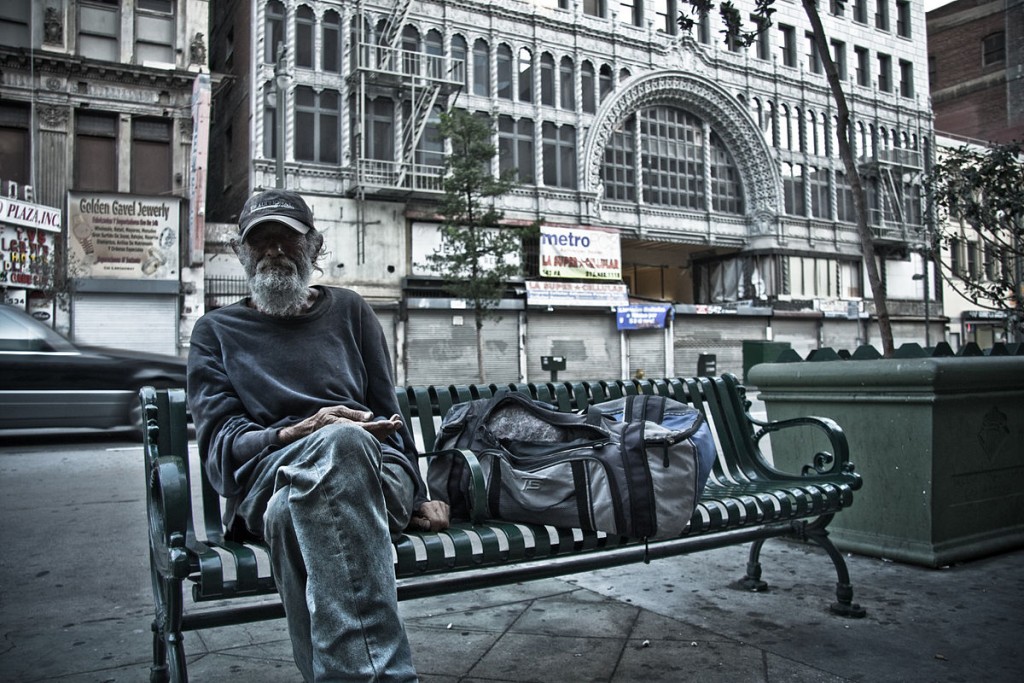The Episcopal Public Policy Network is addressing domestic and worldwide poverty, publishing blogs each Wednesday during Lent.
Today’s post, “Engaging Poverty Through Housing,” explores the racial, economic and gender violence-related roadblocks for homeless and profiles St. Francis Center in the Diocese of Colorado, “a ‘place of peace’ for men and women who are homeless in metro Denver.”
“On a single night in January 2013, there were 610,042 people experiencing homelessness in the United States, including 215,344 people who were living in unsheltered locations.” On that particular night, nearly one quarter (23%) were children. More than a third (36%) were a part of a homeless family.
So reports the US Department of Housing and Urban Development (HUD) in its recent annual report to Congress. Many non-governmental agencies contend that HUD underestimates the actual number of those who experience homelessness over the course of a year, especially when it comes to children. The National Center on Family Homelessness, basing its calculations in part on Department of Education statistics, asserts that nearly 2.5 million American children were homeless at some point in 2013.
This tragic situation is tied in large part to such systemic issues as a lack of affordable housing across the nation, racial disparities, and domestic violence. While not comprehensive, these three issues are becoming an ever increasing reality faced by the unemployed and working poor alike.
In Ash Wednesday’s introductory post, Alexander D. Baumgarten, Director of Public Engagement and Mission Communication, reflects on the following liturgical text:
Into paradise may the angels lead you,
At your coming, may the martyrs receive you
And lead you to the holy city, the new and eternal Jerusalem.
May the choirs of angels receive you and lead you to the bosom of Abraham,
And with Lazarus, once poor, may you have life everlasting.
…and the too-often namelessness of the poor:
All I can take from this is that the Church is trying to tell me that the destiny of my soul is tied to the destiny of Lazarus. Somehow, Lazarus’s poverty connects with my own salvation. And I don’t mean Lazarus as a generic representation of “the poor.” The fact that Jesus gave a name to Lazarus – but not to the rich man, the putative subject of the parable – is perhaps the most telling part of the story. In our world – the present reality whose terminus, for everyone, is death – the names of the rich are known throughout the world. Warren Buffet and Bill Gates, or (considerably more regrettably) Kim Kardashian and Kanye West, are recognizable the world over. But the Lazaruses of the world, the poor and the vulnerable, largely are anonymous to most of us. They are largely anonymous to me. (I pray each morning for those whom I would otherwise neglect to notice, but I am not entirely confident that my act of prayer makes me notice them any more than I otherwise would).
I remember a now-deceased white South African bishop once teaching me about the parable of the rich man and Lazarus. He used an illustration from apartheid-era South Africa to convey the way in which “namelessness” in our world illustrates the apparent neglect of the larger community. So severe was the chasm between the powerful of apartheid South Africa (whites, in that case) and the vulnerable (non-whites) that even the formal practice of newspaper writing on daily life codified this namelessness. For example, if reporting on a car accident involving both whites and non-whites, the newspaper account might read: “Mr. and Mrs. Robert White of Pretoria, along with three blacks, were killed in a high-speed collision.” It sounds ghastly to our ears, but – if we think it through – it really simply reflects the universal reality that was as true in the time Jesus told his parable as it is today. The rich, even if they’ve done nothing of particular note, are treated as valuable, while the poor are treated as expendable and utterly anonymous.
But, in the Divine economy, everything is reversed. God sees the poor clearly and calls them each by name. As the parable instructs us by placing Lazarus at God’s side in the bosom of Abraham, God sees the poor as particularly close to himself. I am confident that God loves the rich as much as the poor – and knows each of their names as well – but I fear that the point of Jesus’ parable is that, the richer we become, the more obstructions we are in danger of placing between ourselves and God’s sight line to us. God perseveres in seeing around those obstructions, I am confident, but we may be unable to do the same. By contrast, God is so close to the poor – so deeply does God dwell in the Lazaruses of the world, and they in God – that all I have to really do to see God is to see Lazarus. When I ignore Lazarus, however, when I can’t see him as he moves in and out of the periphery of my life, I also can’t see God. And God, I think, struggles to see me.
Posted by Cara Ellen Modisett
Photo credit: “Homeless man los angeles-terabass” by Terabass – Own work. Licensed under CC BY-SA 3.0 via Wikimedia Commons – http://commons.wikimedia.org/wiki/File:Homeless_man_los_angeles-terabass.jpg#mediaviewer/File:Homeless_man_los_angeles-terabass.jpg

